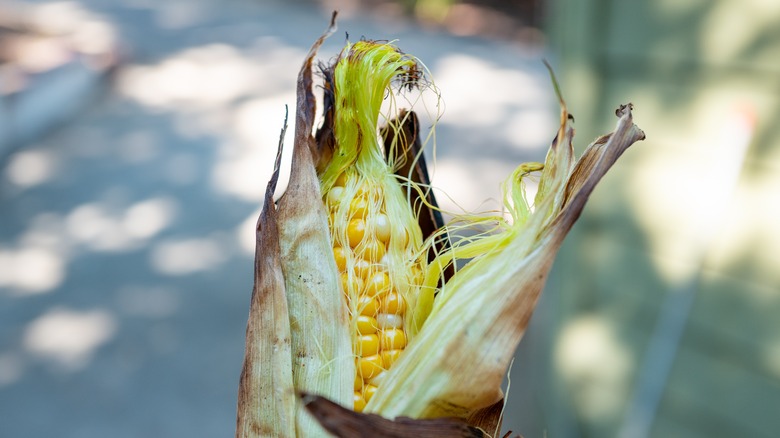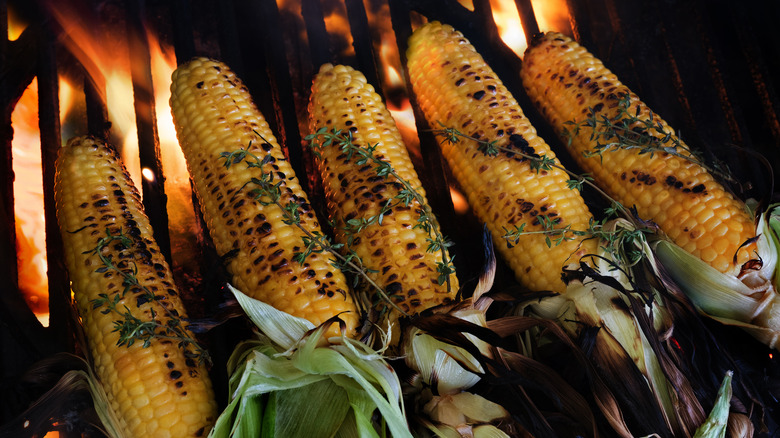Are Corn Husks Flammable? What You Need To Know Before Grilling Corn
Sweet, juicy, and pleasantly smoky, grilled corn on the cob is a staple at backyard barbecues — but it's essential to cook it safely. After all, besides being hazardous, the sight of your food ablaze is a surefire way to spoil appetites, not to mention the festivities. As with any food that goes on the grill, you should make sure that corn is prepared properly. While this could mean shucking each ear of corn, there are a couple of factors you'll want to consider before removing the husks.
Un-shucked corn and an open flame could be a recipe for disaster if you don't thoroughly inspect the cobs before firing up the grill. The papery thin husks are extremely flammable when dry; in fact, they make excellent kindling when lighting a fire. But that doesn't mean that you necessarily have to remove them before grilling corn. If the corn is fresh — the husks should be bright green and snug on the cob — then they're safe to set on the grill as is. However, if the husks are looking a little yellow or are clearly dried out, you can put the corn in water until it's rehydrated. After a thorough soaking, each cob is good to grill.
Of course, if you want to avoid the risk of any corn husks catching fire altogether, you can always remove them (as well as all the wispy strands of corn silk). But doing so could affect how your grilled corn on the cob turns out.
To shuck or not to shuck? It depends
Deciding whether or not to shuck corn before grilling it comes down to personal preference. If you're a fan of corn on the cob that's clearly been cooked over fire (after all, who doesn't love gorgeous grill marks?) and packs a strong smoky flavor, stripping off the husks will get you both of those things. However, it could come at the expense of that perfectly moist, mouth-watering bite, since directly exposing the kernels to high heat may dry them out.
Grilling corn un-shucked keeps the succulent kernels nice and juicy, which is why it's Bobby Flay's preferred method. As they do before harvesting, the fresh (or wet) husks serve as a natural protective barrier between the elements and the cob, preventing the part you eat from dehydrating. And if you do end up soaking the ear beforehand, the extra moisture plays another role besides fire repellant, steaming the corn as it sits on the grill.
However, there is a way to still achieve juicy corn on the cob if you would rather grill each ear sans husk. All you need to do is shuck the corn and wrap each cob in tin foil, which will keep the moisture and flavor trapped inside. Plus, it's helpful if you want to take care of prep ahead of time. This way, when you to fire up the grill, the corn cobs will already be ready to go, without any potentially flammable husks to worry about.

